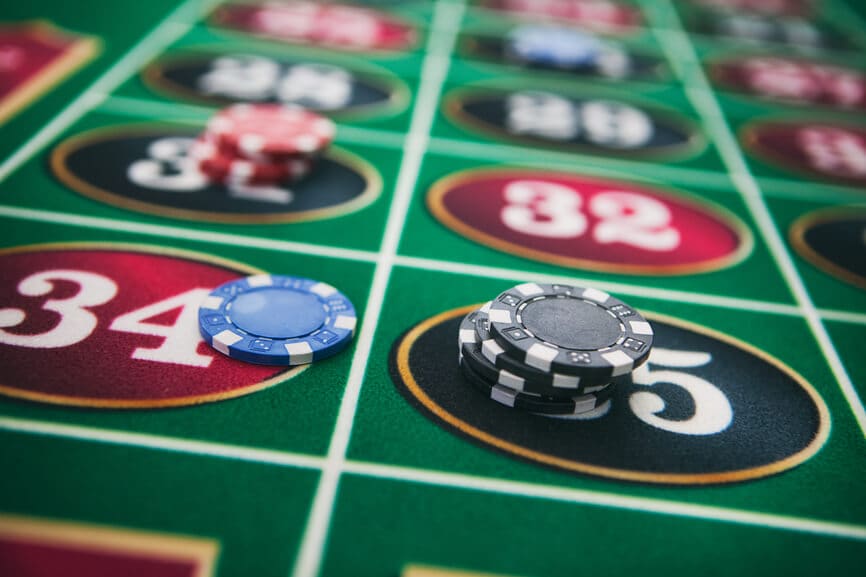Do You Have To Pay Taxes On Poker Tournament Winnings
- Do You Have To Pay Taxes On Gambling Winnings In Pa
- Do You Have To Pay Taxes On Gambling Winnings In Canada
- Do You Have To Pay Taxes On Poker Tournament Winnings 2019
First and foremost, all gambling winnings are taxable — no matter the amount. “Just because a taxpayer doesn’t receive a tax form does not make the winnings tax-free,” Rigley said. “Taxpayers still have a responsibility to report their prize on their tax return as ‘other income.’”. You will have to report them as other income when filing your taxes, and these will be taxed along with the rest of your income according to your filing status and tax bracket. You may also have to pay state income tax on your sports betting cash, depending on where you live.
After two exciting weeks, the 2019 World Series of Poker Main Event is over, and Hossein Ensan of Germany now stands as poker's latest Main Event champion after topping the field of 8,569 to claim the $10 million first prize.
Dario Sammartino of Italy took second for $6 million, Alex Livingston finished third to win a $4 million prize, and each of those making the final table earned at least $1 million for having done so.
Or did they?
As he does each year, federally licensed tax professional, poker player, and writer Russ Fox has shared with the poker world his annual look at the tax obligations faced by each of the nine players who made the WSOP Main Event final table. As Fox has shown before, when we say a player has won a certain, eye-popping amount for winning the Main or making the final table, the player's actual profit is often something less than the reported total thanks to having to pay income tax on the winnings.
In his article 'Location, Location, Location: The Real Winners of the 2019 World Series of Poker,' Fox looks at how the nine players' nationalities will affect their respective tax burdens, showing how almost all of them will be giving up a significant percentage of their winnings. In fact, when added up the total amount taken out of the nine players' prizes will exceed (once again) even the first-place prize.
We've been reporting on Ensan here at PokerNews for a long time, and indeed ever since we've known him he's always said he considers himself an amateur player (see, for example, this profile of Ensan from a European Poker Tour final table five years ago). Ensan again has reiterated his status as an amateur player in interviews both before and after his win this week.
While Ensan saying so fits well with his overall humble and amiable personality, Fox points out how in Germany his status as a professional or amateur is important when it comes to determining his tax obligation. A federal law passed in Germany two years ago 'ruled that professional gamblers must pay income tax on their net gambling winnings (less expenses),' and that 'amateur gamblers do not have to pay income tax on gambling winnings.'

As Fox explains, if Ensan does have to pay tax on his $10 million prize, he will owe more than $4.6 million in taxes to the Bundeszentralamt für Steuern, Germany's Federal Central Tax Office.
Among the other eight players, only seventh-place finisher Nick Marchington escapes having to pay tax on his $1.525 million prize since the United Kingdom does not tax gambling winnings. (This is one reason, Fox notes, why many German poker pros have taken up residence in the UK.)
Meanwhile, each of the others will be paying taxes, in most cases to their home countries and in the U.S. to home states as well. The Canadian Livingston will not have to pay tax in Canada on his winnings but will owe 30 percent of his $4 million prize to the US due to a tax treaty between the two countries.
Do You Have To Pay Taxes On Gambling Winnings In Pa
Fox explains as well how ninth-place finisher Milos Skrbic would have been taxed differently if he lived in his native Serbia, but he currently lives in California. In either case, though, Skrbic would owe a great burden — calculating it as a California resident shows he will owe the most of all the players, percentage-wise (about 47.4 percent), when it comes to paying taxes on his $1 million prize.
Do You Have To Pay Taxes On Gambling Winnings In Canada
Here is how all of those figures break down for the nine players making the final table:
| Position | Player | Prize | Tax Owed | Prize After Taxes |
|---|---|---|---|---|
| 1st | Hossein Ensan | $10,000,000 | $4,606,469 | $5,393,531 |
| 2nd | Dario Sammartino | $6,000,000 | $2,572,350 | $3,427,650 |
| 3rd | Alex Livingston | $4,000,000 | $1,200,000 | $2,800,000 |
| 4th | Garry Gates | $3,000,000 | $1,050,813 | $1,949,187 |
| 5th | Kevin Maahs | $2,200,000 | $870,729 | $1,329,271 |
| 6th | Zhen Cai | $1,850,000 | $706,679 | $1,143,321 |
| 7th | Nick Marchington | $1,525,000 | $0 | $1,525,000 |
| 8th | Timothy Su | $1,250,000 | $491,150 | $758,850 |
| 9th | Milos Skrbic | $1,000,000 | $474,463 | $525,537 |
If Ensan does have to pay taxes on his winnings, the total collected from all of the players adds up to $11,972,653 taken out of the $30,825,000 in prizes for the top nine finishes. That's just under 39 percent, and even more than the $10M first-place prize.
For further details from Fox’s analysis, check out his article.
Do You Have To Pay Taxes On Poker Tournament Winnings 2019
Tags
WSOP2019 WSOPWorld Series of PokertaxesHossein EnsanDario SammartinoAlex LivingstonGarry GatesKevin MaahsZhen CaiNick MarchingtonTimothy SuMilos SkrbicRuss FoxRelated Tournaments
World Series of PokerRelated Players
Dario SammartinoHossein EnsanGarry GatesZhen CaiAlex LivingstonMilos Skrbic